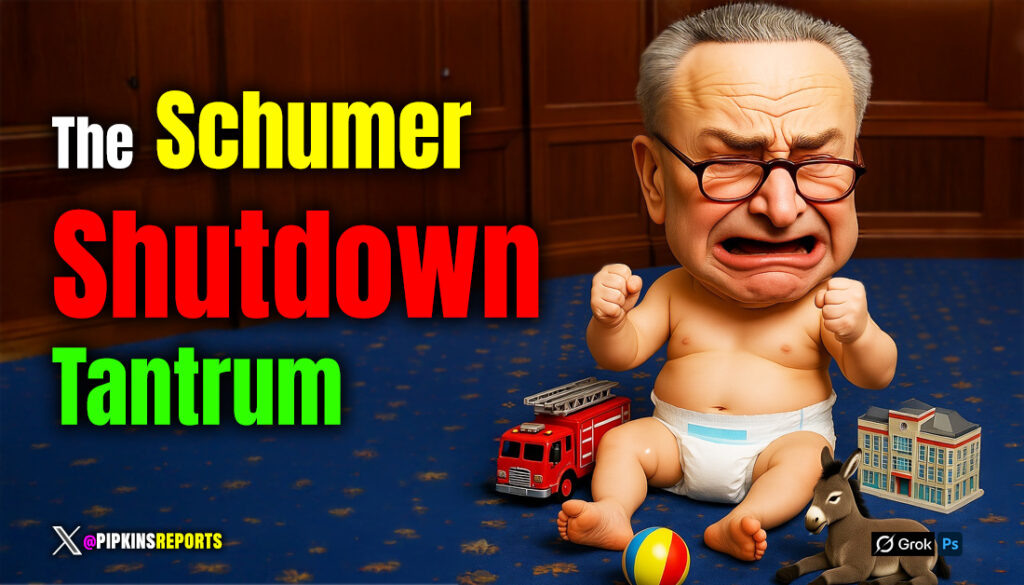Washington DC – The U.S. government entered a partial shutdown at midnight on October 1, 2025, after Senate Democrats, led by Minority Leader Chuck Schumer, blocked a short-term funding bill proposed by Republicans. The impasse centers on disagreements over extending Affordable Care Act premium tax credits and other healthcare provisions. While Republicans control the White House, Senate, and House of Representatives, at least 10 Democrats are required to pass the legislation through the Senate. The shutdown could affect federal operations nationwide; however, Texas stands to feel significant repercussions due to its large federal workforce and reliance on key programs.
Texas hosts more than 130,000 federal civilian employees, second only to a handful of other states, making it particularly vulnerable to furloughs and delayed pay. Facilities like Joint Base San Antonio and NASA’s Johnson Space Center in Houston will continue essential operations, but many non-essential staff could face unpaid leave. In North Texas, over 100,000 workers may be impacted, potentially straining local economies as families delay bills and reduce spending.
National parks in Texas, which attract about 15 million visitors annually to sites like Big Bend and Guadalupe Mountains National Parks, will see reduced staffing. The National Park Service plans to furlough two-thirds of its employees, leading to limited maintenance, fewer ranger-led programs and potential safety issues on trails. While parks remain open to visitors, local tourism-dependent businesses in West Texas could experience revenue drops if access becomes more challenging.
Veterans’ services, critical for Texas’s 1.7 million veterans—the largest veteran population in the U.S.—face disruptions. The Department of Veterans Affairs will keep hospitals operational, but processing of new disability claims and transition assistance programs may halt. Career counseling and GI Bill payments could be delayed, affecting thousands of transitioning service members and their families.
Agriculture, a cornerstone of the Texas economy, is also at risk. The U.S. Department of Agriculture’s Farm Service Agency will pause new loans and disaster assistance, complicating operations for farmers and ranchers. Inspections at ports like Corpus Christi could slow exports of perishable goods, while border security sees indirect effects: U.S. Customs and Border Protection agents remain on duty, but support roles are furloughed, potentially increasing overtime burdens along the 1,200-mile Texas-Mexico border.
The shutdown stems from Democrats’ insistence on including extensions for ACA subsidies, which support 3.1 million policies, many in states like Texas. Republicans advanced a clean nine-week funding bill, but it failed amid partisan votes. President Trump has indicated openness to negotiations but warned of broader reforms if the stalemate persists. Schumer, in a floor speech, called Republican characterizations of Democratic priorities “inaccurate,” emphasizing the need for bipartisan compromise.
For Texans, immediate effects may include closed passport offices and minor travel delays at major airports like Dallas-Fort Worth. Nutrition programs such as WIC could run out of funds within weeks, impacting low-income families. If the shutdown extends beyond a few days—recalling the 35-day closure in 2018-19—rural hospitals might face funding shortfalls, small businesses near military bases could see reduced patronage, and agricultural markets may weaken further.
State officials are preparing contingency measures, including potential use of Texas emergency funds to support affected areas. As negotiations continue, the duration remains uncertain, but history suggests quick resolutions are possible.
One potential path forward for Republicans to break the deadlock involves invoking the “nuclear option” to alter Senate Rule XXII, the cloture rule that currently requires 60 votes to end debate and proceed to a vote on most legislation, including funding bills.
This maneuver, used previously in 2013 and 2017 to lower thresholds for nominations, would allow the GOP majority to reinterpret the rule via a simple majority vote of 51 senators, effectively eliminating the 60-vote supermajority requirement for cloture on such measures.
The process begins with the Senate majority leader raising a point of order asserting that cloture on the bill in question requires only a majority vote. If the presiding officer—typically the vice president or a senator appointed to the chair—rules against it, the majority appeals the ruling. Senators then vote to overrule the chair, needing just 51 votes to succeed, thereby establishing a new precedent that binds future proceedings.
While this could enable swift passage of a funding measure without Democratic support, it risks escalating partisan tensions and altering the Senate’s tradition of extended debate, potentially inviting reciprocal changes if control shifts in future Congresses.
